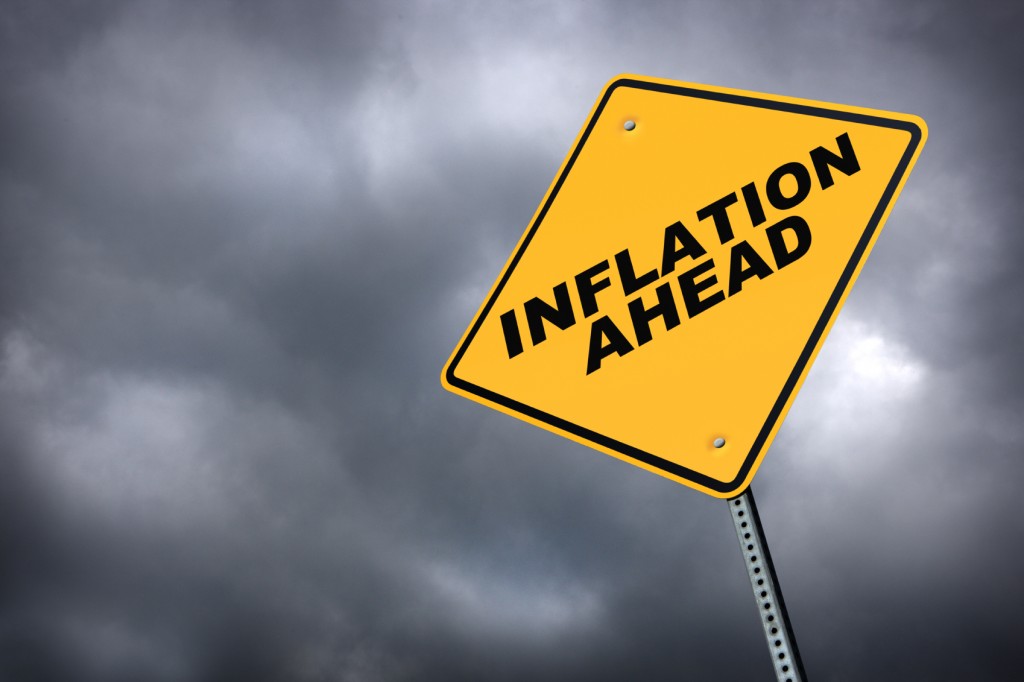Higher oil prices to raise CPI, but MNB sees no spillover

Inflation could rise slightly over the 3% mid-term target in the coming months on the back of sharp increases in global oil prices, but the National Bank of Hungary (MNB) said it expects no spillover effects, according to its quarterly report published in full Thursday.
"Inflation expectations are well-anchored; thus the increase in oil prices is not expected to induce second-round spillover effects," the central bankʼs Monetary Council said in an executive summary prefacing the latest Inflation Report, cited by state news agency MTI.
"After the temporary, inflation-boosting effect of the oil price change has faded, from mid-2019 the rise in underlying inflation trends will ensure the sustainable achievement of the 3% inflation target," the Council added.
The Council said the inflationary effect of the labor market "will remain moderate" as a further cut in payroll tax counters the increase in labor costs. It added that the correlation between domestic labor costs and consumer prices has weakened in recent years, in line with international trends.
Wage growth in Hungary has been in the double digits since early last year, boosted by minimum wage increases and labor shortages. Meanwhile, the government has continued with a gradual reduction of the payroll tax rate, MTI noted.
The Council acknowledged the European Central Bankʼs decision a week earlier to end its asset purchase program, but noted that the ECB had said its key rates would remain unchanged at least through the summer of 2019, keeping monetary policy loose in the euro area. According to the ECBʼs June forecast, the inflation outlook may "remain persistently moderate" in the euro area, which also slows the increase in Hungarian prices, it added.
Raised growth forecast confirmed
The central bank raised most of its forecasts for inflation and GDP growth in the report from the previous report published in March. For this year, it puts annual average inflation at 2.8%, up from 2.5% forecast earlier. It puts GDP growth at 4.4% in 2018, up from 4.2%.
For next year, the MNB has raised its inflation forecast to 3.1%, up from 2.9%, while its GDP growth forecast is 3.5%, up from 3.3%.
In 2020, the MNB envisages average annual inflation reaching 3.0%, level with the mid-term "price stability" target. It puts GDP growth at 2.8%.
The Council said the structure of growth will remain balanced. Growth will still be supported by the expansion of domestic demand, but the dynamic increase in investment activity is also expected to continue until 2019, it added. Corporate investments will be lifted by favorable demand, the low interest rate environment, expanding lending, improved absorption of EU funds, and big one-off projects. Household investment activity is also intensifying, in line with the surge in the housing market cycle, the Council noted.
"Besides maintaining stability, economic policy can increase the rate of potential growth with measures aimed at improving competitiveness and productivity," the Council observed.
Risk scenarios
In addition to the baseline projection in the Inflation Report, the Council highlighted three alternative scenarios.
In the first scenario, it considered an outflow of capital from emerging markets, causing yields in these markets to rise and their national currencies to depreciate.
In the second, wages grow at a faster pace and consumption is higher, lifting prices. Achieving the mid-term inflation target in both these scenarios would be ensured by tighter monetary policy.
In the third scenario, growth is weaker and inflation moderate in the euro zone, which could restrain growth in Hungary. In this case, the inflation target could be achieved by maintaining loose monetary conditions for a longer period, said the MNB.
Temporary rise in deficit
The central bank projects that the accrual-based general government deficit as a percentage of GDP will reach 2.2-2.3% this year. The lower end of the range assumes that reserves in the Country Protection Fund are not used. The MNB puts the deficit at 1.7-1.8% of GDP in 2019, and 1.4-1.8% in 2020.
The MNB explained in the report that the deficit will rise temporarily in 2018 because of tax cuts and the end of one-off revenues from previous years, such as those from the sale of state-owned farm land and from the growth tax credit. The 2018 projection is just under the governmentʼs deficit target of 2.4%.
The MNB also expects higher than targeted budget revenue to shave 0.1 of a percentage point off the deficit as a percentage of GDP. The impact is comprised of the balance of higher wages and employment lifting revenue from taxes on labor, cutting the deficit by 0.3 of a percentage point, but an undershoot of revenue from taxes on consumption, resulting from different estimates on the reduction of the shadow economy, raising the deficit by 0.2 of a percentage point.
At the same time, the central bank expects an overshoot of the expenditure target resulting from an advance wage rise in the healthcare sector, a pensionersʼ bonus, and a subsidy for household energy bills to add 0.1 of a percentage point to the deficit.
The MNB sees revenues falling short of target in the 2019 budget bill, mainly because its forecasts for wage growth and higher household consumption are lower than the governmentʼs. It notes that its projection for absorption of EU funding and state co-financing is under the target in the bill.
SUPPORT THE BUDAPEST BUSINESS JOURNAL
Producing journalism that is worthy of the name is a costly business. For 27 years, the publishers, editors and reporters of the Budapest Business Journal have striven to bring you business news that works, information that you can trust, that is factual, accurate and presented without fear or favor.
Newspaper organizations across the globe have struggled to find a business model that allows them to continue to excel, without compromising their ability to perform. Most recently, some have experimented with the idea of involving their most important stakeholders, their readers.
We would like to offer that same opportunity to our readers. We would like to invite you to help us deliver the quality business journalism you require. Hit our Support the BBJ button and you can choose the how much and how often you send us your contributions.







